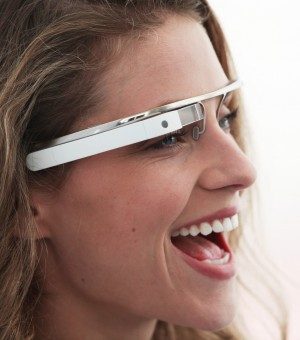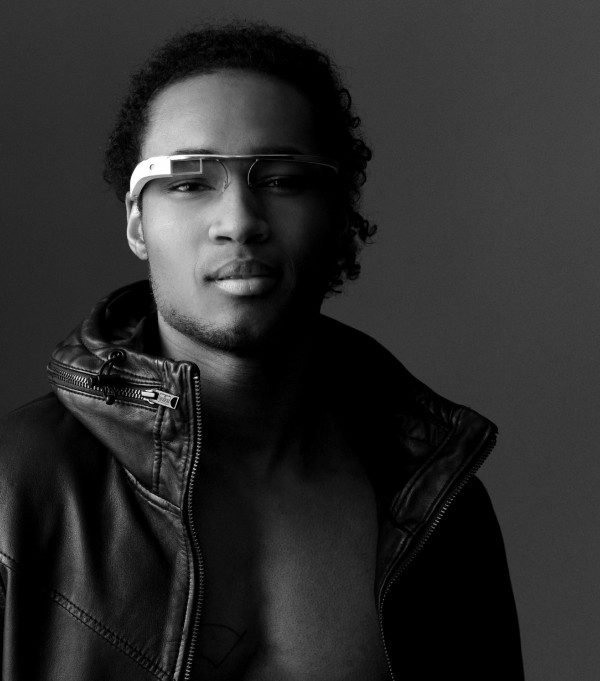 Augmented reality just got a huge boost today thanks to Google who announced an experimental project that they’re calling ‘Glass’. Project Glass has apparently been in the works at Google[x] (Google’s experimental project group) for some time now. The project consists of a lightweight head mounted display which appears to be based on projection technology similar to that of Lumous’ Optical Engine Modules. But the hardware is only half the project, the other half is the software (Google hasn’t named it yet, but let’s call it Glass OS for now) which will power the HMD. I have to imagine that the Glass OS will be Android based, or even more likely, the HMD will link to an Android-powered phone and Glass OS will merely be an extension of the phone.
Augmented reality just got a huge boost today thanks to Google who announced an experimental project that they’re calling ‘Glass’. Project Glass has apparently been in the works at Google[x] (Google’s experimental project group) for some time now. The project consists of a lightweight head mounted display which appears to be based on projection technology similar to that of Lumous’ Optical Engine Modules. But the hardware is only half the project, the other half is the software (Google hasn’t named it yet, but let’s call it Glass OS for now) which will power the HMD. I have to imagine that the Glass OS will be Android based, or even more likely, the HMD will link to an Android-powered phone and Glass OS will merely be an extension of the phone.
With Project Glass Google envisions an augmented reality setup that would allow you to check the weather, see your email, SMS, and other notifications, check your calendar, etc. all from a simple and intuitive interface that stays out of the way when you don’t need it. Google threw together a proof-of-concept video for Project Glass which you can see right here:
[youtube=http://www.youtube.com/watch?v=9c6W4CCU9M4]
Today Google launched a public Google+ page for Project Glass, saying that they wanted to share their work on the project in order to receive feedback.
It’s important to note that all of this is proof of concept. The software may not even exist yet, and if it does, it definitely isn’t as polished as you saw in the video. The hardware is almost certainly still in the prototype stage, and any of the photos that Google has released thus far are very likely non-functional design prototypes.
Even so, with Google now looking to get into the world of augmented reality, interest is going to spike.
I wrote just yesterday that augmented reality had yet to prove itself. If Google can deliver on this vision it could be just what AR needs to become a serious and useful technology. It could also provide the impetus to get both hardware and software development moving at full steam.
So far, no other company that I have seen has released a full AR package. We’ve seen HMD hardware and we’ve seen smartphone apps as AR software, but Google’s Project Glass is the first time that both of these aspects are being designed together and oriented toward mainstream consumers. The New York Times reports that people familiar with the project say that the final price of Google Glass will be around the price of current smartphones (though it’s unclear whether or not they were talking about subsidized or unsubsidized smartphones).
 The Google Glass HMD itself looks rather attractive in my opinion; it is shown with just one eye-piece, but it wouldn’t be difficult to add one to the other side should Google deem it better than a mono-display. It would appear as though the display-boom can be lowered down to see the augmented reality information, or raised when you don’t want to use it. There’s no word on specifications, but I’m willing to bet that Google will be aiming for at least 720p resolution. Imagining the HMD as shown in the video — there would definitely need to be an on-board magnetometer (electronic compass) as well as an accelerator/gyroscope (or similar) in order to do basic horizon-tracking for head-based gestures (looking ‘up’ to see parts of the interface, etc.) and for compass-based navigation. GPS does not need to be included because it could link out to an Android-based device which would have on-board GPS; same goes for data connectivity.
The Google Glass HMD itself looks rather attractive in my opinion; it is shown with just one eye-piece, but it wouldn’t be difficult to add one to the other side should Google deem it better than a mono-display. It would appear as though the display-boom can be lowered down to see the augmented reality information, or raised when you don’t want to use it. There’s no word on specifications, but I’m willing to bet that Google will be aiming for at least 720p resolution. Imagining the HMD as shown in the video — there would definitely need to be an on-board magnetometer (electronic compass) as well as an accelerator/gyroscope (or similar) in order to do basic horizon-tracking for head-based gestures (looking ‘up’ to see parts of the interface, etc.) and for compass-based navigation. GPS does not need to be included because it could link out to an Android-based device which would have on-board GPS; same goes for data connectivity.
I’ll be carefully tracking the Glass project from Google and while I hope to see further developments, I warn that we should all recognize that this is highly experimental and conceptual at this stage. Reports that Google could be shipping Glass by the end of the year are probably not accurate.







Pingback: Two Hilarious Google Glass Parody Videos « Road to Virtual Reality()
Pingback: Valve, Developer of Half-Life 2 and Steam, Internally Researching Augmented Reality; Apple CEO Tim Cook Stops for a Visit « Road to Virtual Reality()
Pingback: Innovega Working on Multi-focal Contacts to Compliment AR Eyewear and HMDs, Available by 2014 Says CEO « Road to Virtual Reality()
Pingback: Google xác nhận nhóm Glass không hoạt động với Nhóm AR / thực tế ảo VR 360 · cogihay360()